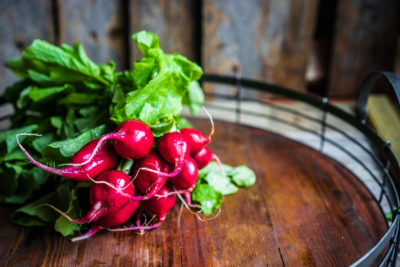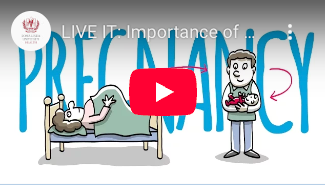
Many of my patients are curious about what they should be eating to maximize fertility and chances of conceiving. The diet I prescribe them is actually very simple. A plant-based diet rich in antioxidants, high in plant protein and free of simple carbohydrates will provide you with more energy, a healthier weight and improved fertility health.
Women planning on starting a family should begin a fertility-focused diet. Research strongly suggests that the food and nutrition taken in the months before conception support healthy early fetal development as well as a healthier childhood and adulthood.
Below is an abbreviated version of the specific nutrition and diet recommendations I give all of my patients undergoing fertility treatments at Loma Linda Center for Fertility and IVF. A healthy diet will result in differences in how your body functions and looks. It will not only help you be healthier, it will improve your chances of getting pregnant and having a normal pregnancy and a healthy child.
Plant protein, fruits, beans, nuts…and ice cream!
The fertility diet centers on non-processed foods such as plant proteins, vegetables, beans and nuts. These foods contain higher levels of antioxidants that help normalize hormones and protect eggs and sperm from possible damage.
Iron is a crucial mineral that you need to get enough of to optimize your fertility. Although red meat is a high-iron food, pass as much as you can on steaks and burgers. Researchers at Harvard School of Public Health discovered that women who eat a diet high in red meat increase infertility risk by 39 percent. Instead of red meat, consume other high-iron foods such as oysters, chickpeas and cooked spinach.
If you’ve been drinking skim milk or fat-free yogurt, you should swap them out for the full-fat versions. Although the science is not fully understood, it shows that women consuming low-fat dairy have a harder time conceiving than those women who shy from fat-free dairy. Ice cream even counts and can be a weekly treat in the fertility diet.
Research also reveals improvement in egg and embryo quality among women who consumed reduced carbohydrates and higher levels of protein. Lean protein sources include cold-water fish, salmon, chicken and turkey. Red meat is best avoided.
Keep carbs slow and low
Potatoes and grains are not part of the diet because they rapidly increase insulin levels, negatively affecting ovarian function. If you choose to eat grains, choose those that are slowly absorbed in the body such as rye, barley and oatmeal. Steel-cut oats are a better choice than instant oatmeal, as steel cut oats are more slowly absorbed. If you occasionally choose to eat potatoes, eating them with butter or sour cream is suggested because the fat will slow the absorption of the potatoes.
Some foods should be avoided by women who are pregnant or are attempting pregnancy including:
- Shark
- Swordfish
- King Mackerel
- Tilefish
The FDA suggests that Americans don’t eat enough fish, and recommends eating up to 12 ounces (2 average meals) a week of a variety of fish and shellfish that are lower in mercury.
It has been suggested that soy intake is associated with changes in sperm function, but the data is unclear. Studies that looked at outcomes in IVF cycles where soy intake was measured failed to show a relationship between soy and IVF outcomes.
The guidelines above are only a starting point for changes you can make that increase your fertility (and your overall health). While there is no single change in diet that will guarantee pregnancy, a healthy diet is an important part of preconception preparation. The foods listed above are not an exhaustive list of best foods. A great resource on nutrition that I recommend my patients read is, “Why We Get Fat and What to Do About It” by Gary Taubes.
Want to learn more about nutrition?
Watch LLU Health’s Live It segment on nutrition during pregnancy.

